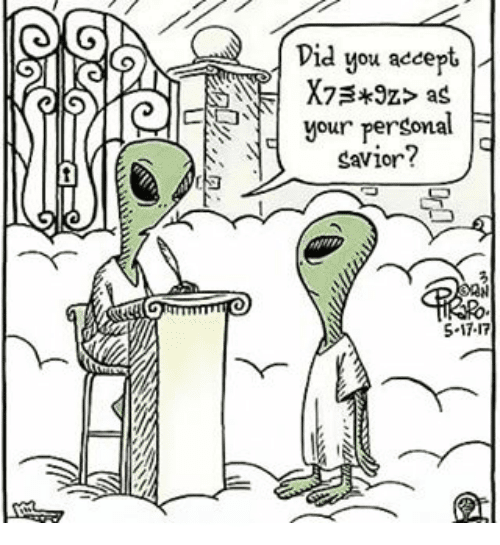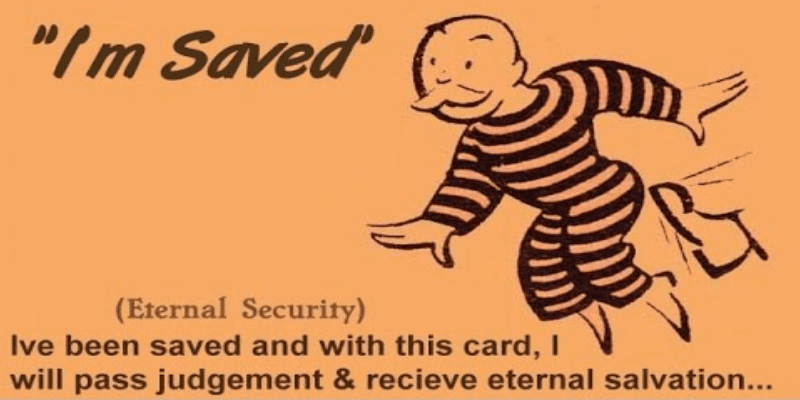
I recently received the following comment from an Evangelical man named D.E. Wilson (all spelling, grammar, punctuation, and irrationality in the original).
My question is, if your an apostate and don’t believe in God and turned atheist I presume your unconcerned about Hebrews 9:27, you better hope your HUMAN MIND HAS JUDGED CORRECTLY.
Yes, I am unconcerned about anything the Bible says. It’s just a book, no different from the Harry Potter books. For readers not familiar with Hebrews 9:27, it says: “And just as it is appointed for mortals to die once and after that the judgment.” Wilson wants me to know that I have an appointment with death, and after drawing my last breath, I will be judged by God. And as he stated later, if I refuse to repent and get saved, I will burn in Hell forever. However, since I think the Bible has no relevance for today, I couldn’t care less if someone threatens me with hellfire and brimstone. The only person I fear is my partner, Polly, when she is holding a Lodge cast iron 12” skillet over my head.
And let me add, judgment doesn’t immediately happen after death. Most Evangelicals have no idea about what the Bible says about death and judgment. Even preachers often make unsupportable claims about death and the afterlife. According to Christian orthodoxy, after we die, we end up in the grave, awaiting the resurrection of the dead (just and unjust). After the general resurrection, we will be judged by God and sent to Heaven or Hell. Sorry, Granny ain’t running around Heaven. She’s dead, in the grave, awaiting the resurrection. THEN, she will be judged. (A good read on this subject is Dr. N.T. Wright’s book, “Surprised by Hope: Rethinking Heaven, the Resurrection, and the Mission of the Church.”
Wilson warns me in ALL caps: “You better hope your HUMAN MIND HAS JUDGED CORRECTLY.” I am confident that I have skeptically and rationally judged the central claims of Christianity and found them wanting. I’m betting Wilson has not done the same.
Now I’d like to introduce you to something new, you were never saved,
LOL! Something new? Really? I have been told by more pontificating Evangelicals than I can count that I never was a Christian. This claim is patently untrue. Have you noticed that when Evangelicals claim I never was a Christian, they NEVER, EVER present any evidence for their claim. And I mean none. They can’t wrap their minds around my story, so, with a wave of their hands, they dismiss my story out of hand. This is lazy thinking, to say the least.
I’ve been blogging for eighteen years; thousands of posts and millions of readers. In all that time, only one person who (allegedly) has publicly said that they KNEW I wasn’t a Christian. This person said she knew me in the late 70s and 80s, but refused to give her name. One person, of doubtful reputation. That’s it. If I was such a fake Christian, how is it that no one, including my colleagues in the ministry, sensed I was a fraud? Thousands of people personally knew me or heard me preach, yet to the person they thought I was a devoted, Holy Spirit-filled preacher.
Jesus says His people are given to Him by God and He’s lost none. Maybe the Holy Spirit will never save or draw you to Christ, because unless you’re drawn by God you cannot come to Him when you like. That’s one of the IFB mistakes that you can come to Christ without the drawing of The Holy Spirit.
Sigh (please see Why I Use the Word “Sigh”).
First, I left the Independent Fundamentalist Baptist (IFB) TWENTY FUCKING YEARS before I deconverted.
Second, I never, NOT ONE TIME, believed or preached that someone can come to Christ without the drawing of the Holy Spirit. (No one can come to me unless drawn by the Father who sent me, and I will raise that person up on the last day. John 6:44) Even after I left the IFB church movement, I still believed that the drawing of the Spirit (among other things) was required for salvation.
Wilson, as many Evangelicals do, judges me by his own personal experiences. Thus, he had a bad experience with the IFB church movement, and judges me by what he experienced in the past. This is a bad way to judge anything, especially religion.
Sometimes, my critics pick a singular point on my timeline, and judge me from that point in my life. This ALWAYS leads to bad conclusions. I evolved over the years politically, socially, and theologically. This should be considered a sign of growth and maturity, but many Evangelicals think if you theologically change your mind you are sinful or you have taken the first step down the path of apostasy. I was never afraid to change my mind if my studies showed me I was wrong. Over the years, I changed my mind about all sorts of theological positions. My core beliefs — think Nicene Creed — never changed, but my soteriology, eschatology, ecclesiology, and pneumatology evolved, sometimes dramatically.
I know I worked the bus ministry for years and had hundreds of professions and very few pocessors of a new nature, were you one of the thousands that prayed without seeing yourself as God sees you, a lost ungodly sinner who deserves hell and under conviction who broke down with a repentant heart crying out to God for forgiveness.
I was a true-blue Christian; a devoted, committed follower of Jesus. Yes, I saw myself as God saw me: an ungodly sinner deserving Hell. At the age of fifteen, I repented of my sins and cried out to God for forgiveness. There is literally NO evidence from that time that suggests otherwise. If you have it, Wilson, cough it up.
I did, and instantly I knew I was born again,
So did I. And I professed my newfound faith to my church, my family, and my friends. And when I went to school, I professed my faith to my teachers and classmates. And two weeks later, I told my church that God was calling me to preach. A few weeks later, I preached my first sermon.
To Wilson I say, let’s compare our relative Christian lives. I am confident that my life will measure up to yours. In fact, I’m confident I was likely more committed to following Christ than you are, and as an atheist, I’m a better Christian than many of the Evangelicals I know. Shall we whip out our proverbial gospel dicks and see who was a bigger/better Christian? I am game, if you are.
and by FAITH I became a new creature and it completely changed my life.
The same goes for me. Now what, Wilson?
There is hope but it’s Gods doing all of Grace and none of man. He even gives us our Faith.
And I NEVER, EVER, NOT ONE TIME, said otherwise. You seem not to know or have forgotten that I was a Calvinist. Every Calvinist I know would say, “[Salvation] Gods doing all of Grace and none of man. He even gives us our Faith.”
Try harder, Wilson, try harder. This post is your opportunity to challenge me and provide evidence for your claims.
Saved by Reason,

Bruce Gerencser, 68, lives in rural Northwest Ohio with his wife of 47 years. He and his wife have six grown children and sixteen grandchildren. Bruce pastored Evangelical churches for twenty-five years in Ohio, Texas, and Michigan. Bruce left the ministry in 2005, and in 2008 he left Christianity. Bruce is now a humanist and an atheist.
Your comments are welcome and appreciated. All first-time comments are moderated. Please read the commenting rules before commenting.
You can email Bruce via the Contact Form.







